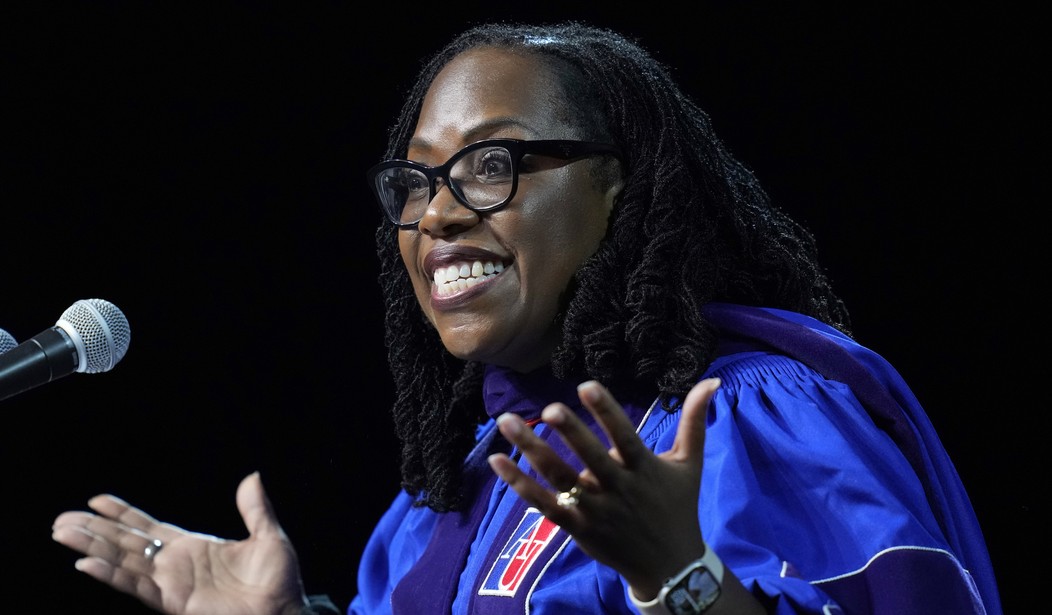We reported earlier about the oral arguments happening in front of the Supreme Court on Thursday regarding the 14th Amendment challenge to former President Donald Trump's inclusion on the Colorado primary ballot in Trump v. Anderson.
I'll preface this by saying you can't necessarily tell how Supreme Court justices will decide a case based on the questions that they ask in oral arguments. Sometimes, they're pressing people to firm up thoughts in their own minds, and they may be heading in the opposite direction.
But that said, it was fascinating to see some of the best questions come from the liberal wing of the Court, particularly Justice Elena Kagan and Justice Ketanji Brown Jackson.
As George Washington law professor Jonathan Turley observed, some of the most skeptical came from the liberal justices.
The argument is now over. The disqualification advocates may have expected a cold reception, but this was perfectly glacial. Notably, some of the toughest and most skeptical questions came from the left of the Court.
— Jonathan Turley (@JonathanTurley) February 8, 2024
...Most notable were the questions from Justice Jackson who seemed to push the idea that the president may not have been intended to be one of those covered by the provision.
— Jonathan Turley (@JonathanTurley) February 8, 2024
Jackson's most interesting questions centered around the officer provision. I bolded the relevant part:
No person shall be a Senator or Representative in Congress, or elector of President and Vice-President, or hold any office, civil or military, under the United States, or under any State, who, having previously taken an oath, as a member of Congress, or as an officer of the United States, or as a member of any State legislature, or as an executive or judicial officer of any State, to support the Constitution of the United States, shall have engaged in insurrection or rebellion against the same, or given aid or comfort to the enemies thereof. But Congress may by a vote of two-thirds of each House, remove such disability.
In order for the provision to apply to Trump, you would have to decide he was an "officer of the United States" within the meaning of this term. That was the part that Jackson had an issue with, and if it doesn't apply, then the case goes away, and he can't be disqualified under it.
Here's what Jackson asked when she grilled Jason Murray, the attorney who was representing the Colorado voters who are challenging Trump's eligibility.
Now Kentaji Brown Jackson is destroying Colorado's entire argument:
— Greg Price (@greg_price11) February 8, 2024
"They were listing people who were barred [from office under the 14th amendment] and president is not there." pic.twitter.com/UsrvZfpqMD
She notes they did not include "president" in the plain language while they were listing people.
"They were listing people who were barred [from office under the 14th amendment], and 'president' is not there," she said. "Why is that?" His response did not appear to satisfy her.
Jackson pressed on, noting if it isn't in the plain language, and there is an ambiguity, why would you construe it against "democracy," i.e., denying millions of people the right to vote for the candidate of their choice?
Great questions.
I think this isn't going to go well for the folks trying to ban Trump here. If I were going to guess, I would think the majority would go with Trump, although, as I noted, you can't assess things from the questions. But the justices really sounded like they weren't buying the ban Trump side.













Join the conversation as a VIP Member